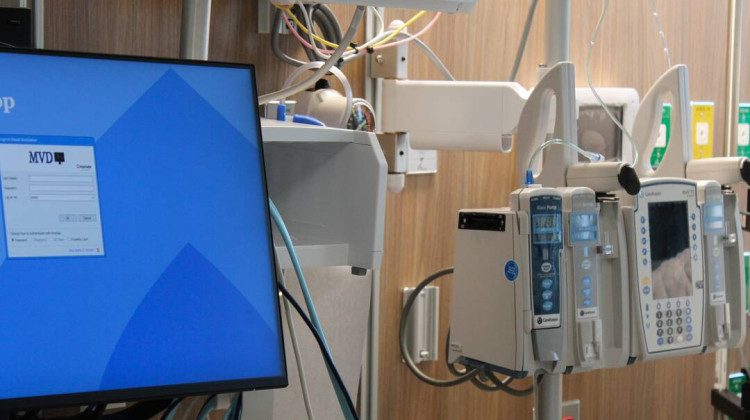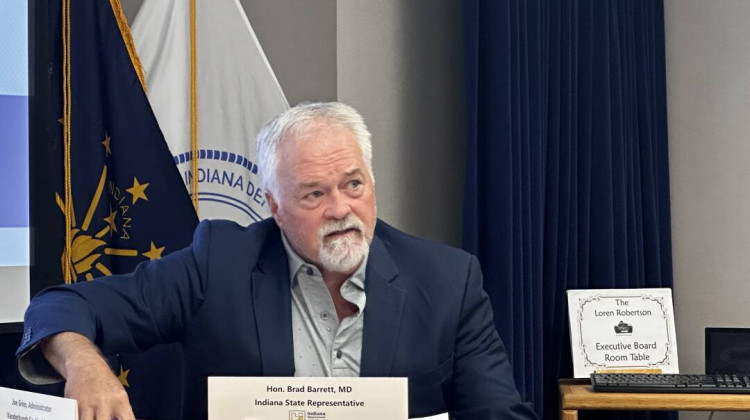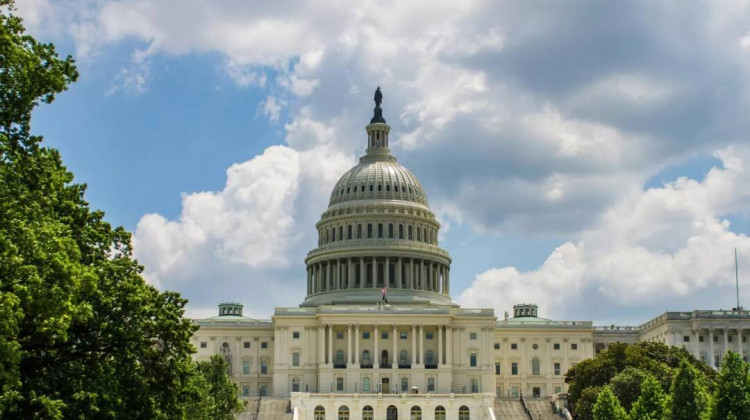
The Indiana Department of Health said until a state law passed last year, it didn't have the money to support local health departments — some of which have few employees — to take on more cases of kids found with elevated blood lead levels.
Abby Lanes/FlickrIndiana is one step closer to helping more children with lead poisoning than ever before. The state adopted an emergency rule last month to lower the threshold for when public health agencies have to address elevated blood lead levels in children — and will consider making the change permanent.
Under the rule, local health officials must provide services for kids with even relatively low levels of lead in their blood — like notifying their doctor, testing other kids in the home, and educating parents on how to prevent lead exposure.
If that level reaches 5 micrograms per deciliter, they’ll get full case management — including a home visit to find out where the lead is coming from.
For about a decade, Indiana’s threshold has been at least twice as high as the Centers for Disease Control and Prevention recommends.
The Indiana Department of Health said until a state law passed last year, it didn't have the money to support local health departments — some of which have few employees — to take on more cases of kids found with elevated blood lead levels.
"We are making this change now because we’ve been able to identify funding to support the change and have dedicated state and local health department staff who are able to support the move. This is due in large part to the work of the legislature and the governor’s office to prioritize this issue," said IDOH officials, in a statement.
Environmental health advocates, like Indra Frank with the Hoosier Environmental Council, have been pushing for this change for a long time.
“There are many more children in our state who are affected by lead who are now going to receive the care that they need. So I'm very glad to see it," Frank said.
READ MORE: Indiana has a chance to help more kids with lead poisoning than ever before
Join the conversation and sign up for the Indiana Two-Way. Text "Indiana" to 73224. Your comments and questions in response to our weekly text help us find the answers you need on statewide issues, including this series on climate change and solutions.
Garry Holland is the education chair of the Indianapolis NAACP. He said it's a good first step to help more people identify where lead is coming from, but more is necessary.
“The study or the need for the healing of the people that have been exposed is what we want to advocate for," Holland said.
The Indianapolis NAACP is exploring ways to improve the lives of children who already have lead poisoning — including better performance in school.
Another state law passed this year also requires healthcare providers to offer lead screening for every child under 6.
Frank said it’s important that kids get tested for lead as soon as they can crawl. Pregnant women should also consider getting tested.
Residents in Marion, Vermillion, Vigo and St. Joseph counties can receive free kits to test their home for lead through the Indiana Collaboration for Lead Action and Prevention. Residents who have well water should also have their drinking water wells tested.
IUPUI and the Indianapolis Ministerium also offer anonymous lead testing kits for residents in Indianapolis and Muncie.
Contact reporter Rebecca at rthiele@iu.edu or follow her on Twitter at @beckythiele.
Indiana environmental reporting is supported by the Environmental Resilience Institute, an Indiana University Grand Challenge project developing Indiana-specific projections and informed responses to problems of environmental change.
9(MDAyMzk1MzA4MDE2MjY3OTY1MjM5ZDJjYQ000))
 DONATE
DONATE








 Support WFYI. We can't do it without you.
Support WFYI. We can't do it without you.